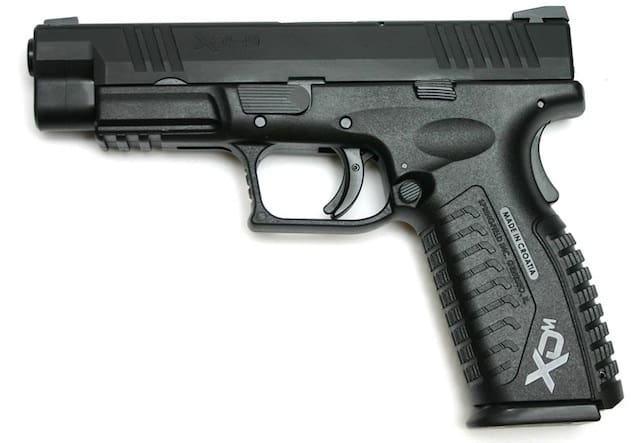The National Rifle Association has joined a complaint against the City of Chicago re: Mayor Daley’s new gun control laws, enacted just four days after the Supreme Court incorporated the Second Amendment right to bear arms. Download the text here. The main complainant is Brett Benson, a married, 37-year-old Mercantile Echange trader and Chicago resident with three young children. He’s joined by teaching assistant Raymond Sledge, and married couple Kenneth Pacholski and Kathryn Tyler. The Illinois Association of Firearms Retailers also has a skin in the game. OK, so here’s their beef . . .
Thus the Ordinance impermissibly burdens the exercise of the right to keep and bear arms by all law-abiding adults under the age of 21 and effectively prohibits the exercise of such rights by such individuals who do not have parents or guardians, or whose parents or guardians refuse to give consent (for whatever reason or no reason), or whose parents or guardians are ineligible for obtaining their own CFP or FOID.
. . . the Ordinance dictates that there can be no place in Chicago where one can obtain the firearms training that the Ordinance itself mandates for legal possession of a firearm. This provision impermissibly burdens the right to keep and bear arms of all residents of Chicago and effectively denies that right entirely for individuals who lack the means to travel to a jurisdiction where firearms training is available.
. . . the Ordinance dictates that the residents of Chicago cannot obtain the firearms training that the Ordinance itself requires in Chicago and that is otherwise desired by Plaintiffs and other gun owners to achieve and maintain proficiency in the operation and use of their firearms. This provision impermissibly burdens the right to keep and bear arms of all residents of Chicago and effectively denies that right entirely for individuals who lack the means to travel to a jurisdiction where firearms training is available.
Although the Ordinance furthers the pretense that Section 8-20-170(b) is a safety regulation by including in the superintendent’s determination such factors as “reliability” and “quality of manufacturing,” in truth the law gives that official unfettered discretionary power to proscribe ownership of any—or all—handguns as “unsafe.” Indeed, several of the factors that the Ordinance lists as potentially leading to ban on a particular model of handgun as “unsafe” are parameters that would in any reasonable determination count as virtues for a self-defense weapon. A small, light handgun, of small caliber, is easier to handle and wield—especially for the elderly, the infirm, and for women—yet the Ordinance provides that “size,” “weight,” and “caliber” may be used to ban a handgun as “unsafe.”
Section 8-20-060(a) outlaws the possession of—and legally defines as contraband—any “laser sight accessory.” This proscription is facially at war with the Ordinance’s supposed purpose of promoting the safety of Chicago’s residents. A laser aiming7Case 1:10-cv-04184 Document 1 Filed 07/06/10 Page 8 of 20device substantially enhances the user’s prospects for hitting the target—such as an attacker in one’s home—and banning such devices therefore impairs the ability to exercise, safely and effectively, the right to armed self-defense.
. . . the Ordinance imposes a total ban in Chicago on possessing or carrying a firearm outside one’s home for personal protection, except in one’s fixed place of business where long guns, but not handguns, are permitted. For example, if an elderly widow lives in an unsafe neighborhood and asks her son to spend the night because she has recently received harassing phone calls, the son may not bring his registered firearm with him to his mother’s home as an aid to the defense of himself and his mother. Similarly, if a resident of Chicago owns his own business, such as a convenience store, in a dangerous neighborhood, the resident may not carry his firearm each day from his home to his business for purposes of self-protection. Nor may he possess a handgun at his place of business, even if he is disabled or otherwise incapable of operating a long gun.
The bottom line:
These provisions infringe upon, and impose an impermissible burden upon, Plaintiffs’ right to keep and bear arms under the Second and Fourteenth Amendments.




